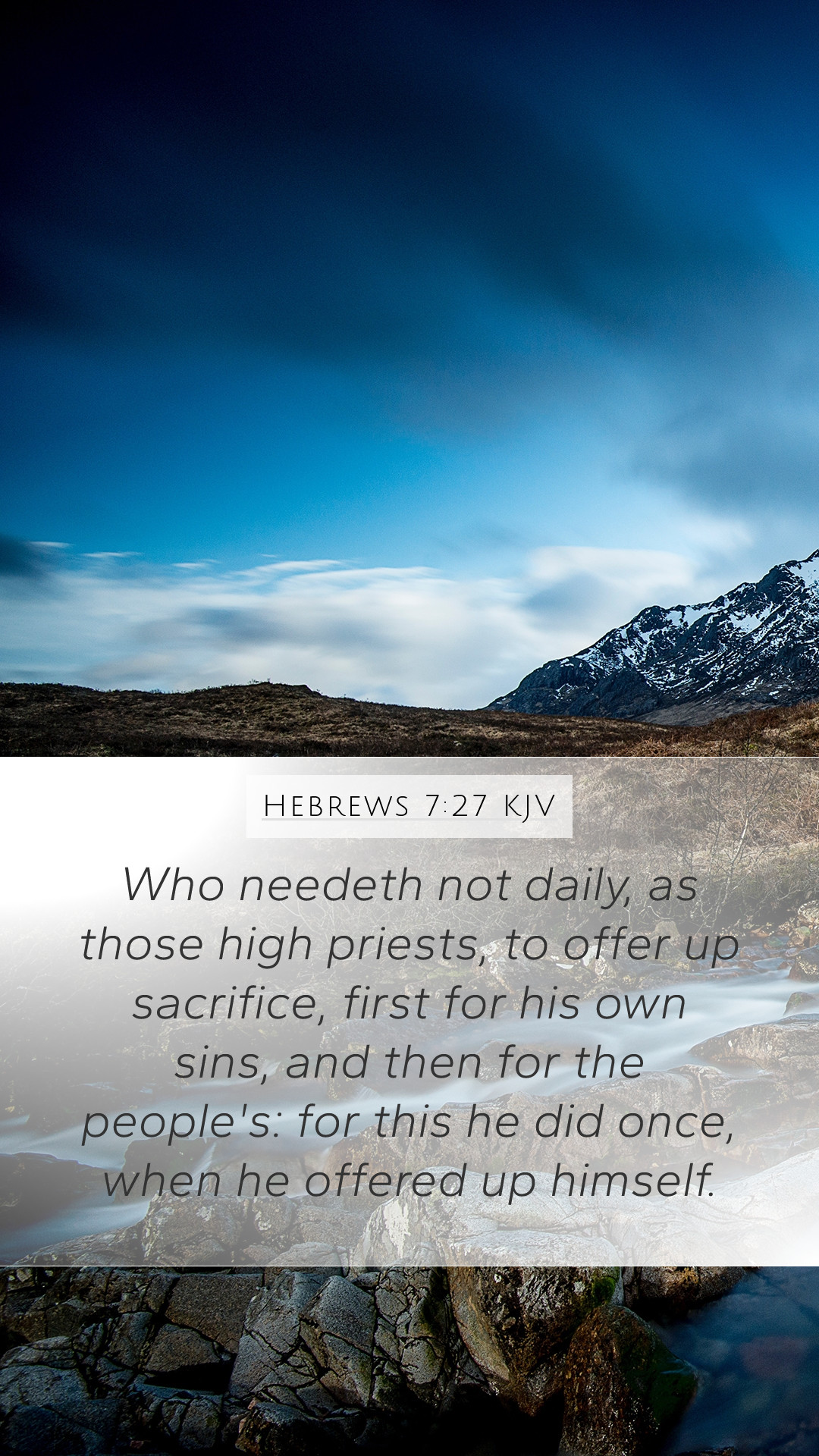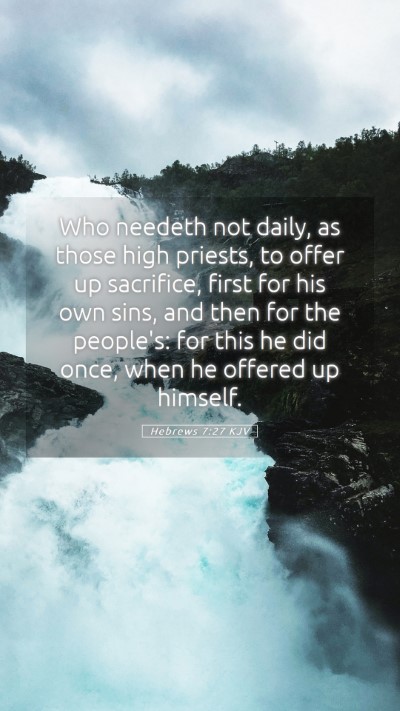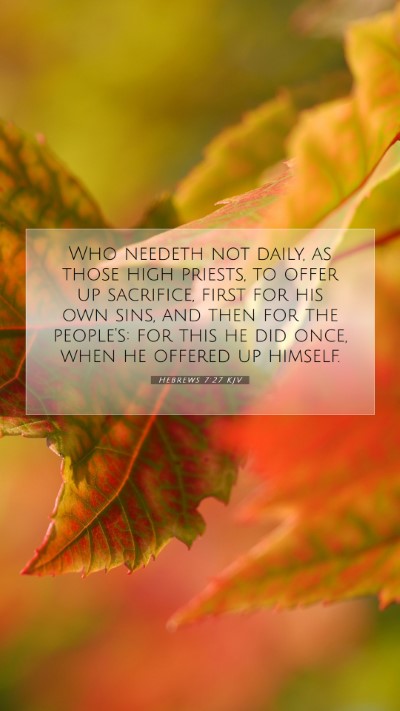Bible Verse Meaning: Hebrews 7:27
Verse Reference: Hebrews 7:27
Verse Text: "Who needeth not daily, as those high priests, to offer up sacrifice, first for his own sins, and then for the people’s: for this he did once, when he offered up himself."
Understanding Hebrews 7:27
The message in Hebrews 7:27 revolves around the unique and unparalleled priesthood of Jesus Christ. This verse presents Jesus as the ultimate high priest who does not require daily sacrifices as was customary for the Levitical priests. Those priests had to offer sacrifices for their own sins and for the sins of the people continually. In contrast, Jesus only needed to offer himself as a sacrifice once for the sins of all humanity, showcasing His singular role in redemption.
Bible Verse Explanations
In this passage, the author of Hebrews emphasizes several significant points:
-
Cataclysmic Sacrifice: Unlike regular priests, Jesus’ sacrifice was definitive and complete, ending the repetitive need for animal sacrifices.
-
Fulfillment of the Law: Jesus fulfills and surpasses the requirements of the Old Testament law, thus establishing a new covenant.
-
Sinless Nature: Jesus, having never sinned, did not need to offer sacrifices for His own sins, unlike the high priests of the old covenant.
Bible Verse Interpretations
Matthew Henry elaborates on this verse by highlighting the profound implications of Christ’s sacrificial death. He emphasizes that Christ's singular offering contrasts dramatically with the daily offerings required by the priests under the old covenant.
Albert Barnes provides a perspective on the significance of Jesus' role as high priest, expressing that the effectiveness and finality of His sacrifice are pivotal for believers, as it symbolizes the possibility of total forgiveness and reconciliation with God.
Adam Clarke regards the verse as a declaration of liberty for believers, underscoring how Christ's sacrifice frees them from the obligation of continual offerings and grants them direct access to the Father.
Significance in Scripture
The impact of Hebrews 7:27 is profound, forming the basis for various theological discussions:
-
Distinct Priesthood: Hebrews explains the distinction between Jesus as the high priest and the Levitical priests.
-
One-time Sacrifice: Emphasizes the sufficiency of Christ’s sacrifice and the grace it provides to believers.
-
Access to God: Illustrates how believers are granted direct access to God due to Christ's completed work.
Application of Hebrews 7:27
For individuals today, Hebrews 7:27 offers incredible comfort and reassurance. Understanding this scripture can lead to profound insights into the nature of God’s grace and the finality of Christ's work for salvation. For those participating in Bible study groups or engaging in online Bible study, this verse can serve as a foundational point for discussions on atonement and the nature of Jesus’ sacrifice.
Cross References to Consider
- Hebrews 4:14-16 - Discusses Jesus as our great high priest who offers us access to the throne of grace.
- Hebrews 10:10 - Describes the sacrifice of Christ as a one-time offering for sins.
- 1 Peter 3:18 - Explains that Christ suffered once for sins, highlighting the significance of His sacrifice.
Conclusion
In summary, Hebrews 7:27 communicates essential truths about the priesthood of Christ and His sacrificial work. Understanding this verse enriches one's Bible verse commentary and contributes significantly to biblical exegesis, allowing believers to grasp the depths of God’s plan for redemption and how it applies to their lives today.


